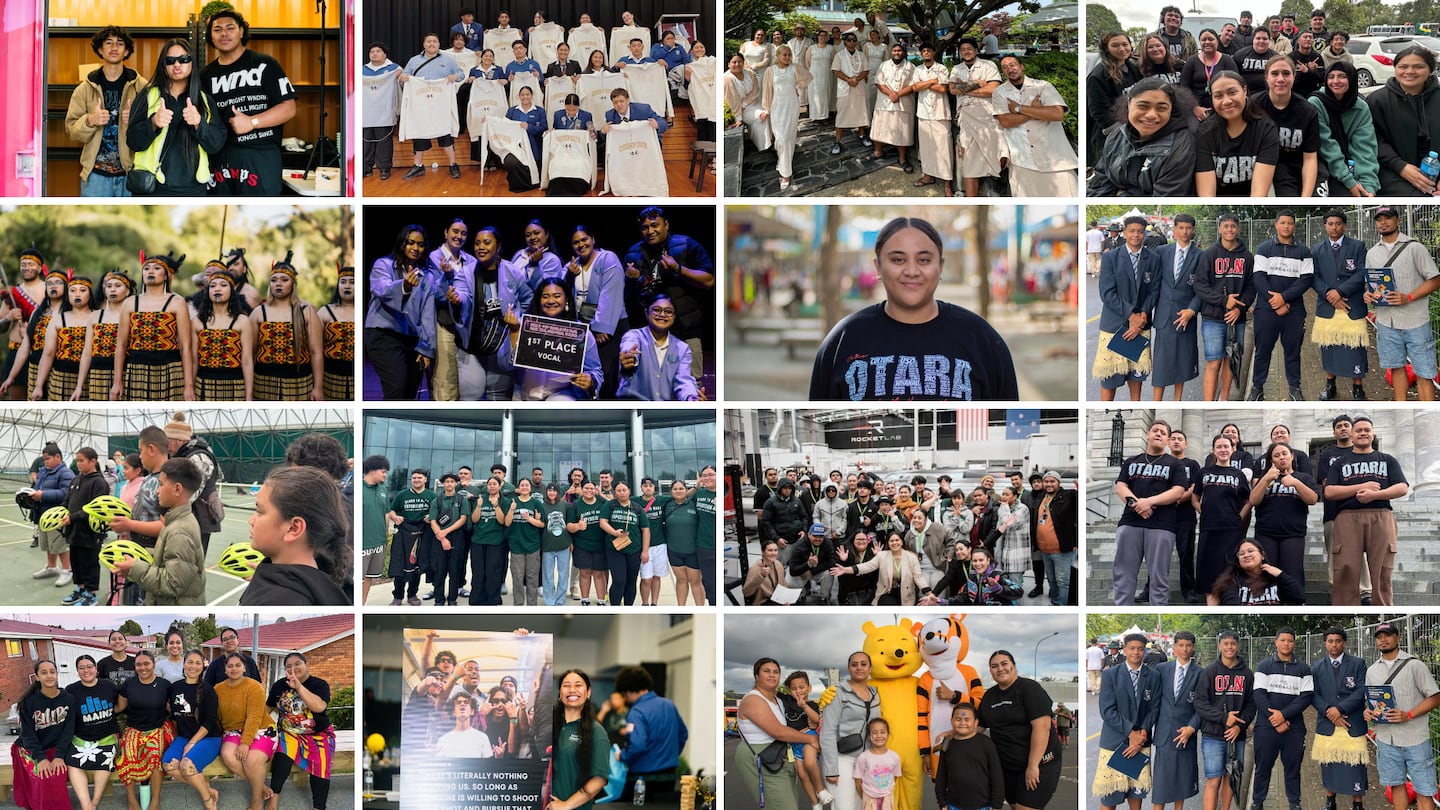The unexpected closure of the Ōtara Youth Hub has left staff without jobs and local rangatahi, young people, without a trusted place to seek help.
The situation highlights how contract funding cuts reshape communities in South Auckland.
Ōtara has around 21,700 residents, with a median age of just 27.6, and more than half (54 percent) of the population is under 30, according to the 2023 census and community data. The youthful demographic shows the critical need for dedicated youth spaces in the area.
According to an E Tū Whānau feature published in July 2023, the Ōtara Youth Hub, which E Tū Whānau had funded for the past three years, provided local rangatahi with a safe and creative environment for career support, music production, mentoring, and cultural activities, even enabling some young people to attend NASA Space Camp and the Dubai Expo. Its sudden closure cuts off access to this wide range of opportunities.
Victoria Hearn, a former employee at the Ōtara Youth Hub, said the entire team was made redundant when funding was exhausted.
“Myself and all the youth hub were made redundant due to them running out of funding and not securing more. So, as of the 30th of June, I finished sadly. My team and I are absolutely gutted as there is now no physical space for our rangatahi who needed it most. They are going to still run youth programmes, but there will no longer be the intensive one-to-one support that we provided for our higher risk and disengaged rangatahi.”
Hearn suggested that inquiries should be directed to CEO Terangi Parima.
In a heartfelt statement on social media before the closure, the Ōtara Youth Hub stated: “Like many others across Aotearoa, we have been directly impacted by the government’s funding cuts, and sadly, this special place, along with our incredible team of kaimahi, is one of the casualties.
“The Youth Hub has been more than just a space. It’s been a second home, a safe haven, and a source of connection, inspiration and growth for hundreds of young people ... We know the loss of this space is painful. The Ōtara Youth Hub has been the only daily drop-in space for youth in our area, and its absence will be deeply felt.”
Apulu Reece Autagavaia, chair of the Ōtara-Papatoetoe Local Board, said the situation clearly shows how government cost-cutting affects local frontline services.
“It’s really unfortunate, and this is a sign of the government’s cuts to social organisations, social contracts… This is what happens when we have a government that just wants to save and give money to landlords, tobacco lobbyists and oil companies,” he said.
“At the grassroots level, at the everyday street level, this is what happens. The good services get closed down, and this is what Ōtara people are suffering from.”
The local board is now seeking ways to find alternative council-owned spaces in the town centre to fill the gap left by the Youth Hub.
“We need to find another place for them. The local board members are keen to look at what, within council facilities, can accommodate them,” Apulu said.
Manukau Ward councillor Lotu Fuli said the closure is just one example of how funding cuts affect a young community like Ōtara.
She said the Youth Hub played a significant role in reaching young people who might not otherwise receive support.
“Ōtara-Papatoetoe is the second youngest in terms of average age in the city, and Māngere-Ōtāhuhu is the youngest. The whole Manukau ward is the youngest in the city and possibly the country. So it’s really important we have initiatives for young people, and that they feel empowered as leaders, not just of tomorrow but today.
“My understanding is it’s because of cuts in funding generally. We’re seeing that happen across the board to pretty much every community programme and locally driven initiative in the city and the country.”
While the physical hub has closed, Fuli said the group still exists and may continue some activities in shared spaces like the Ōtara Kai Village.
She said different organisations and groups, such as the Youth Hub and the Youth Council (TOPS), serve different segments of the youth population.
“I hope that in the near future, we’ll see the Ōtara Youth Hub re-establish an actual place where they can carry on their work. From what I understand, they still exist but will probably be working out of the Ōtara Kai Village space. It just means they don’t have a separate hub dedicated just for young people.
“Groups like TOPS really concentrate on our secondary school leaders who are probably going on to university, whereas the Youth Hub caters more to young people who are perhaps out of the school system, like our biker boys, who don’t necessarily end up in tertiary education. The wider we cast our net, the better.”
What happens next? The honest answer is that no one knows yet.
Terangi Parima, CEO of Terangi Community Builders Trust, declined to comment.
The local board continues to explore what council-owned facilities could host youth services in the future.
LDR is local body journalism co-funded by RNZ and NZ On Air.




